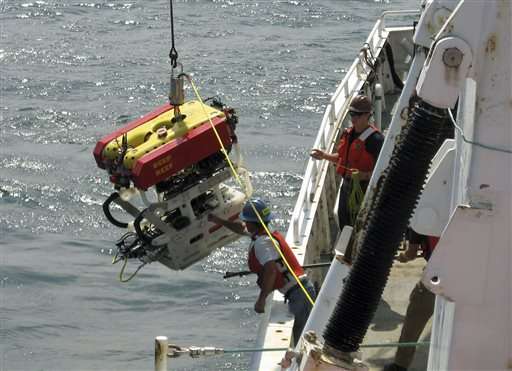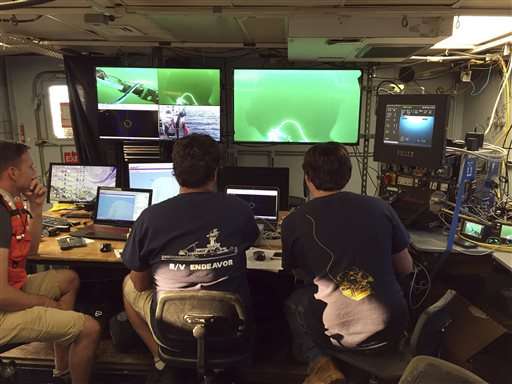Visibility a challenge for scientists studying German U-boat

Scientists who set out to use submersibles to study a German U-boat off the Rhode Island coast said Tuesday they were hampered by poor visibility but the mission was still a success because they were able to test new technologies that allow such expeditions to be broadcast to large audiences.
"It's very encouraging to know that the shipwrecks are all still there and they're still intact. They all tell a story," said Dwight Coleman, director of the Inner Space Center at University of Rhode Island, which led the five-day trip. "We learned a lot about the limitations of the technology. We tried our best, and it's part of doing ocean research."
The group had hoped to explore the German U-853 during the trip that ended Sunday as part of an effort to learn more about how shipwrecks affect the environment. The sub was sunk by Coast Guard and Navy ships in the Battle of Point Judith on May 6, 1945, the day before Germany surrendered in World War II. The group also hoped to explore the merchant ship the SS Black Point, the last U.S. merchant ship sunk in the Atlantic during the war, which U-853 took down.
Technical problems and poor conditions made the work difficult, but the group was ultimately able to make one good dive at U-853, Coleman said. Once the submersible got there, though, visibility was close to zero so it couldn't see much.
However, a new satellite tracking antenna and video broadcast equipment worked well, Coleman said, and allowed the public to follow along online, on broadcasts on the local PBS station and on social media. URI said 328,000 minutes of the expedition was watched live on YouTube.

Viewers who watched from shore, including students in classrooms, were able to send in questions in real time and make it an interactive experience. Coleman said that makes it "unbelievably powerful for science education."
"You could transform schools, you could transform education," he said. "Getting into classrooms, getting into colleges and universities, having scientists take part in education."
Scientists on the trip also conducted successful experiments with equipment developed to tag fish with microchips that run on tiny batteries. They hope the technology can be used to track the movements of fish to help to manage fisheries, Coleman said.
Scientists from Connecticut's Ocean Exploration Trust and the U.S. Coast Guard Academy also worked on the trip, made aboard the National Science Foundation's research vessel Endeavor.
© 2015 The Associated Press. All rights reserved.



















